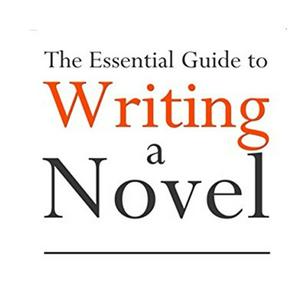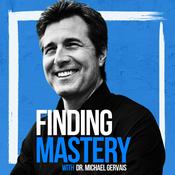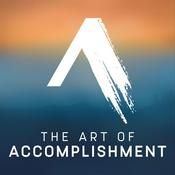205 episodes
- Sometimes we are full of ambition to write. Yet we don't. We put off our writing, then put it off again. Why do we do that? And what can be done to get us in front of the keyboard? Here are thoughts on what we can do to get us producing. Also, powerful first sentences drop the reader into the story after the action is already underway. Here's how to do it, with examples from excellent writers.
Here is a 20-episode master class on fiction writing—a start-to-finish course covering plot, characters, dialogue, scenes, sentence-level craft, and much more. Each episode is focused and about 30 minutes. The full class—all 20 episodes—is available now for a one-time price of forty-nine dollars. If you want structured, concise guidance, click the Buy the Master Class link in the show notes to get started.
Support the show
Buy the master class. - Some words don't add anything to a sentence other than confusion. Here are several modifiers that our story is better without. Also, is cutting ten percent of our manuscript a good goal when editing? What should we cut to reach that ten percent?
Here is a 20-episode master class on fiction writing—a start-to-finish course covering plot, characters, dialogue, scenes, sentence-level craft, and much more. Each episode is focused and about 30 minutes. The full class—all 20 episodes—is available now for a one-time price of forty-nine dollars. If you want structured, concise guidance, click the Buy the Master Class link in the show notes to get started.
Support the show
Buy the master class. - Dialogue lets the reader become part of the story, as if the reader is standing next to the characters listening to them talk. Not all conversation between characters is equal: argument is the most engaging dialogue. An argument between characters in our story--the back and forth, the accusations and denials, the evasions and justifications--can be riveting. Here are thoughts on writing the big argument scene.
Support the show
Buy the master class. - Writing fiction is work but it doesn't need to be a grind. Here's how we can have fun while we write, things that'll give us a joyful kick, maybe even make us laugh. Also: the important technique of the mini-backstory, which reveals so much about our character in so little space.
Here is a 20-episode master class on fiction writing—a start-to-finish course covering plot, characters, dialogue, scenes, sentence-level craft, and much more. Each episode is focused and about 30 minutes. The full class—all 20 episodes—is available now for a one-time price of forty-nine dollars. If you want structured, concise guidance, click the Buy the Master Class link in the show notes to get started.
Support the show
Buy the master class. - Physics loves formulas: E=MC2. How about writing? Here is a formula for writing strong sentences, ones that are clear and have energy. Our setting and character descriptions can also benefit from a formula, one that shows how to engage the reader. That formula is talked about here, too.
Support the show
Buy the master class.
More Education podcasts
Trending Education podcasts
About Essential Guide to Writing a Novel
Hosted by James Thayer, the podcast is a practical, step-by-step manual on how to craft a novel. It presents a set of tools for large issues such as story development and scene construction (Kirkus Reviews said Thayer's novels are "superbly crafted') and it also examines techniques that will make your sentence-by-sentence writing shine. The New York Times Book Review has said Thayer's "writing is smooth and clear. it wastes no words, and it has a rhythm only confident stylists achieve.
Podcast websiteListen to Essential Guide to Writing a Novel, The Jamie Kern Lima Show and many other podcasts from around the world with the radio.net app

Get the free radio.net app
- Stations and podcasts to bookmark
- Stream via Wi-Fi or Bluetooth
- Supports Carplay & Android Auto
- Many other app features
Get the free radio.net app
- Stations and podcasts to bookmark
- Stream via Wi-Fi or Bluetooth
- Supports Carplay & Android Auto
- Many other app features


Essential Guide to Writing a Novel
Scan code,
download the app,
start listening.
download the app,
start listening.








































